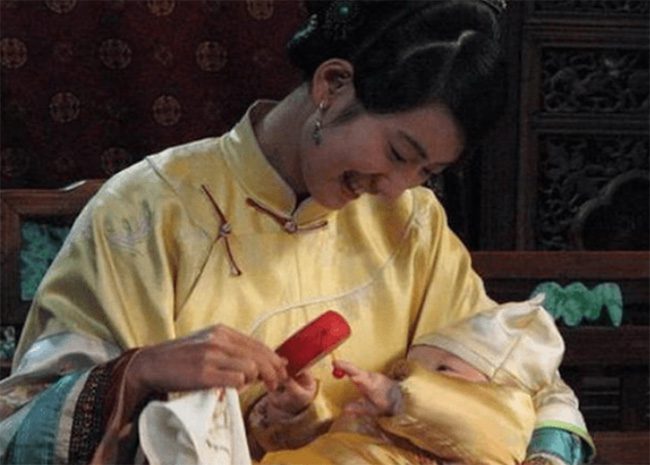In the feudal court, there was a rule that princes and princesses, after being born, would not be raised by their biological mothers. They would be cared for by wet nurses, also known as nursing mothers.
Why Were Concubines Not Allowed to Raise Their Biological Children?
This requirement stemmed from four main reasons.
First, during the feudal era, only the wealthy and aristocratic families could afford to hire wet nurses. Thus, hiring a wet nurse to care for the family’s children also served as a display of wealth and abundance.
Second, although affluent families could provide nutritional support for new mothers, not all mothers could produce enough breast milk. Therefore, they had to hire wet nurses to ensure their children were well-fed and healthy.
Third, the feudal era was marked by a patriarchal society where women’s lives depended on their husbands. After giving birth, women had to recover quickly to continue serving their husbands; otherwise, they would be considered unworthy.
In wealthy families with multiple wives and concubines, this expectation was even more pronounced. If a woman was busy caring for her children and neglected her husband, the likelihood of losing his favor increased significantly.

Concubines would hand their children over to wet nurses for care. (Image: Sohu)
Fourth, the competition in the palace was much fiercer compared to that in ordinary families. Concubines who bore princes or princesses would see their status elevated significantly. A woman who gave birth to a son had a greater chance of becoming the esteemed mother of the nation.
To prevent political factions from manipulating and seizing power, the court established the rule that princes and princesses would not be raised by their biological mothers but rather by wet nurses.
Wet Nurses in the Palace Faced Great Hardships
Historical records indicate that Emperor Puyi of the Qing Dynasty had a wet nurse named Wang Qiao. She was born into a poor peasant family and was in dire need of money, prompting her to seek a position as a wet nurse in the palace for Puyi.

Being a wet nurse for princes and princesses is not an easy job; it is, in fact, very laborious. (Image: Sohu).
To become a wet nurse for the young emperor, Wang Qiao had to adhere to a series of strict rules. First, she had to eat plain boiled pork leg daily, without any seasoning. Even if it became nauseating, she was obligated to consume it to ensure she had enough milk for Puyi.
Next, Wang Qiao was absolutely forbidden from seeing her daughter, even though she had just given birth. The palace’s reasoning was that they feared Wang Qiao would allow her daughter to nurse, which would prevent the young emperor from getting enough milk. Tragically, her daughter died from lack of breast milk. Even more inhuman was the palace’s decision to hide the news of her daughter’s death from Wang Qiao, fearing that the emotional impact would affect the quality of her milk for the emperor.
From Wang Qiao’s story, we can see that being a wet nurse for a young emperor, prince, or princess is not only challenging but also extremely arduous. Nonetheless, Wang Qiao continued with this role despite the hardships, primarily due to her need for money. Many others, like her, had to compete fiercely for a livelihood, often facing dire circumstances.


















































